From the postcard-perfect Coral Bay to the hidden beauty of Secret Cove, these spots promise stunning photos and unforgettable views.
GVI
Posted: August 29, 2024

Megan Colborne
Posted: January 28, 2022
Interested in diving? Dreaming of ocean adventure? A scuba diving course should be your next step, and we’ll take you through the steps of getting your PADI certification.
It’s one thing to appreciate the ocean from the shoreline and another to take it in from the water’s surface with a snorkel. But literally immersing yourself in the underwater world as a scuba diver is an unparalleled experience.
When done responsibly, learning to scuba dive can be so much more than just a path to your personal adventure. Diving is a skill you can use to give back to the environment – and grow a purposeful career.
Reaching the ultimate level of Divemaster with a PADI diving certification will provide you with an enriched experience that includes education, training, and adventure.
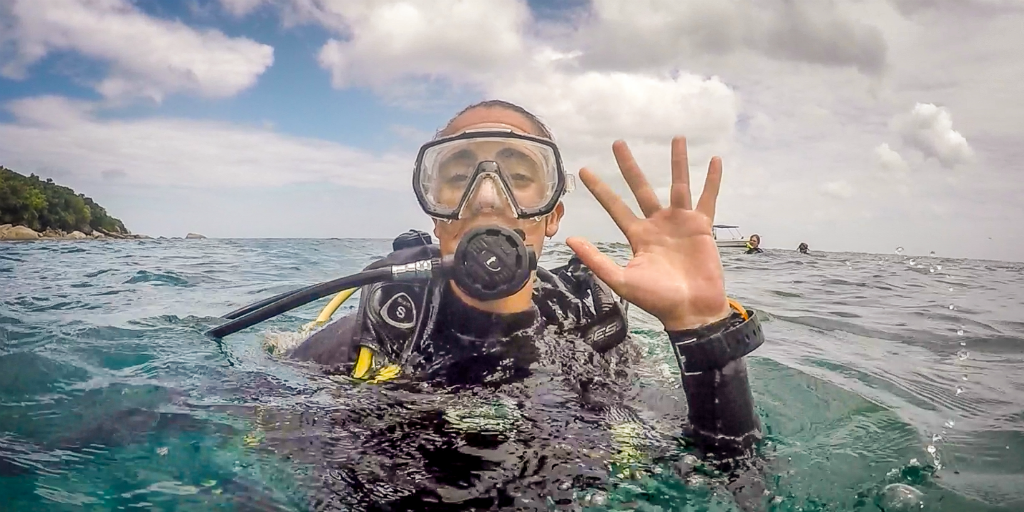
PADI, or the Professional Association of Diving Instructors, offers recreational diving memberships and dive training.
When you successfully complete any of the PADI courses, you will be awarded a PADI certificate. PADI training provides education in diving skills, safety information and local environmental knowledge.
This focus on environmental knowledge explains why, for example, it is important to protect underwater ecosystems. Programs also encourage all new divers to use their qualifications and skills to spread awareness about global aquatic conservation issues.
This proves PADI’s commitment to their conservation ethics, and promises to work towards the protection and preservation of the oceans.
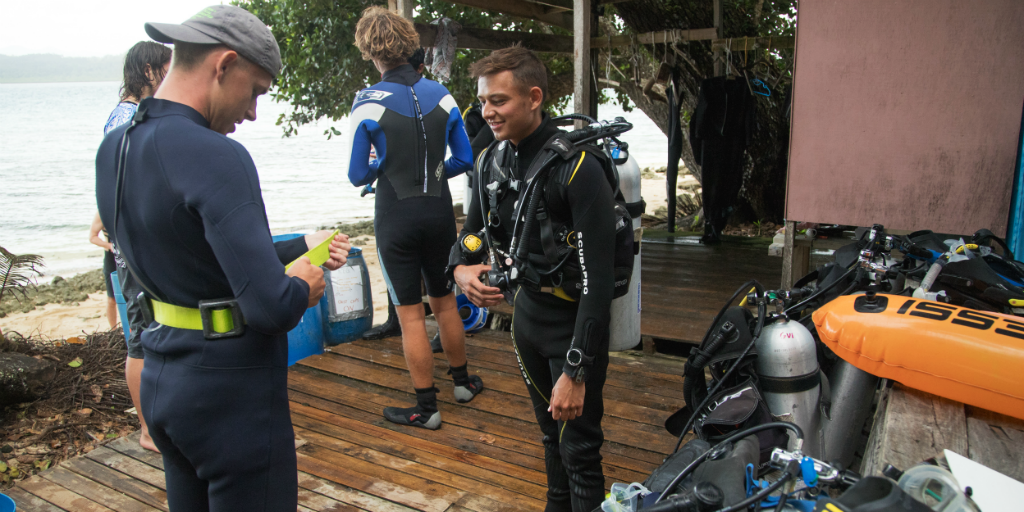
PADI offers various levels of training and certification, with most courses consisting of three main components.
The first component is an online self-study module. This aims to provide you with the knowledge of the basic theories involved in the practice of diving.
The second component is diving within confined waters, such as a swimming pool, to increase your level of comfort with the diving equipment and techniques. And finally, open water dives are used to put what you have learned into practice.
These three components form the basis of most PADI certification levels.
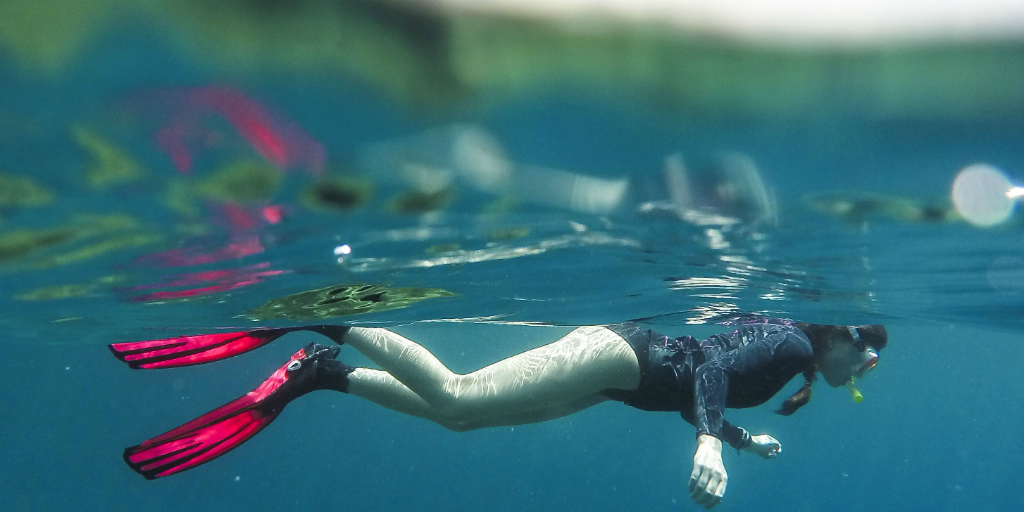
This is the minimum qualification offered by PADI, designed to give you a feel for whether diving is for you.
You’ll complete a one-day training program with no prior experience required – you’ll just need to be in good health!
Although this course won’t earn you any official certification, it can be used as a credit towards gaining your PADI Open Water Diver certification.
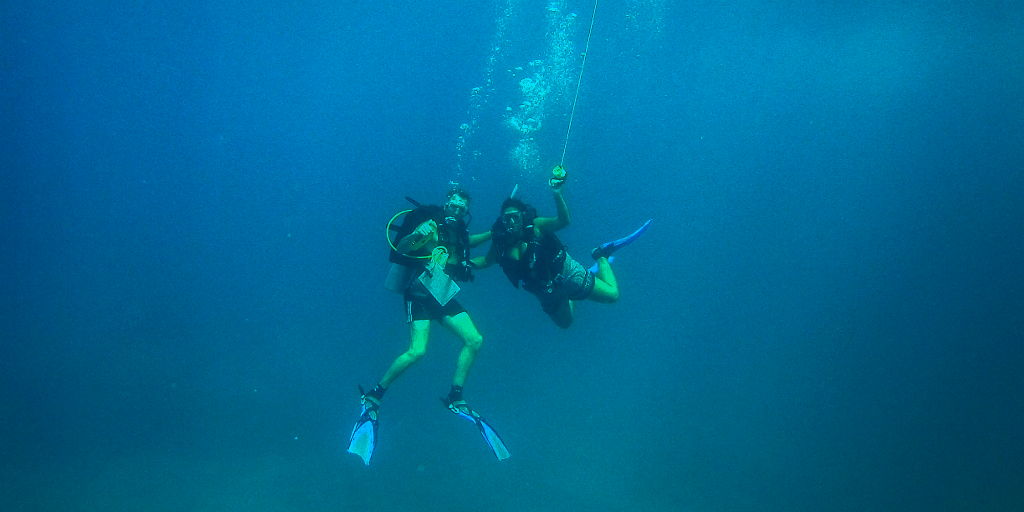
The PADI Scuba Diver is a popular entry-level course that provides training in scuba diving skills. The certification is made up of a two-day practical course and an online learning component.
After completion you will be certified to dive up to 12 metres alongside a professional guide, and rent or buy your own scuba diving equipment.
And as a next step, you’ll complete the PADI Open Water Diver certification.
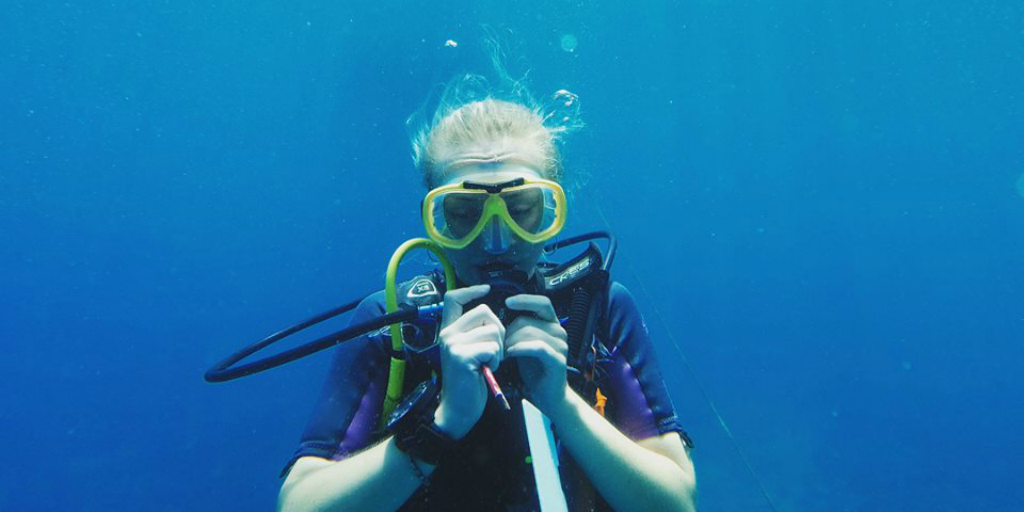
This course officially “knights” you as a qualified diver after you’ve completed an online course, which takes around 12 to 15 hours, and four-day dive training.
This level of PADI diving certification will allow you to dive with a fellow open water-certified diver, up to 18 metres deep.
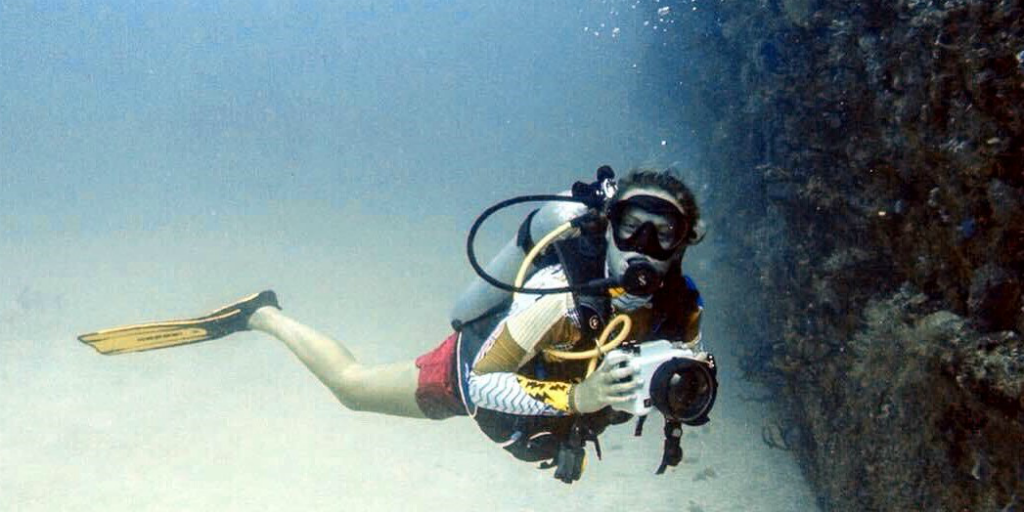
As the name suggests, PADI Specialty Divers will undergo a specific PADI diving certification designed to prepare them to undertake a certain role underwater.
These courses usually take one to two days to complete and may include skills such as underwater photography, deep river diving, underwater navigation, and search and recovery.
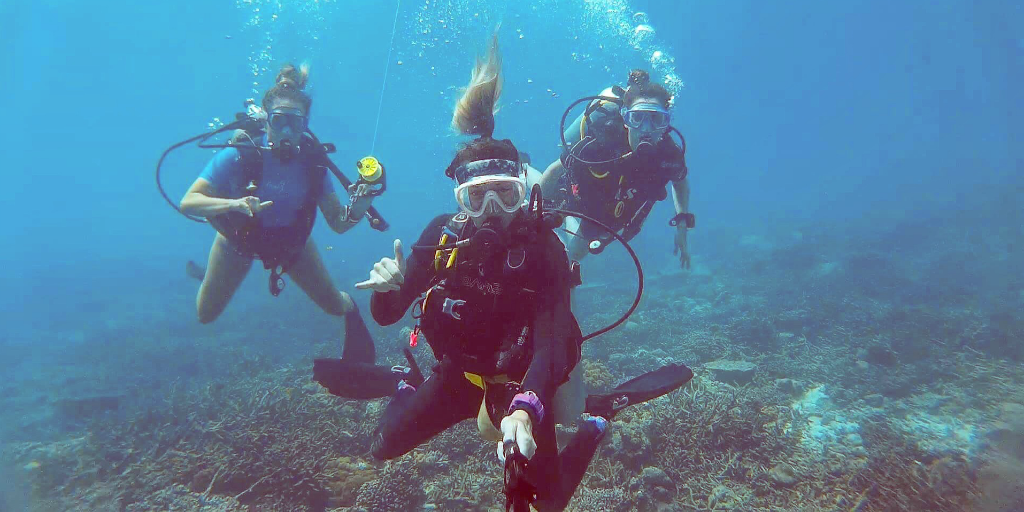
This certification takes two days to obtain and consists of five different dive courses. Participants on this course will be required to complete five training dives using five different skill sets or learning outcomes.
Two of these five courses must be the Deep Dive and Underwater Navigation Dive Specialty courses. The other three courses can be chosen from a supplied list. This advanced course is the most commonly chosen of the PADI certification levels.
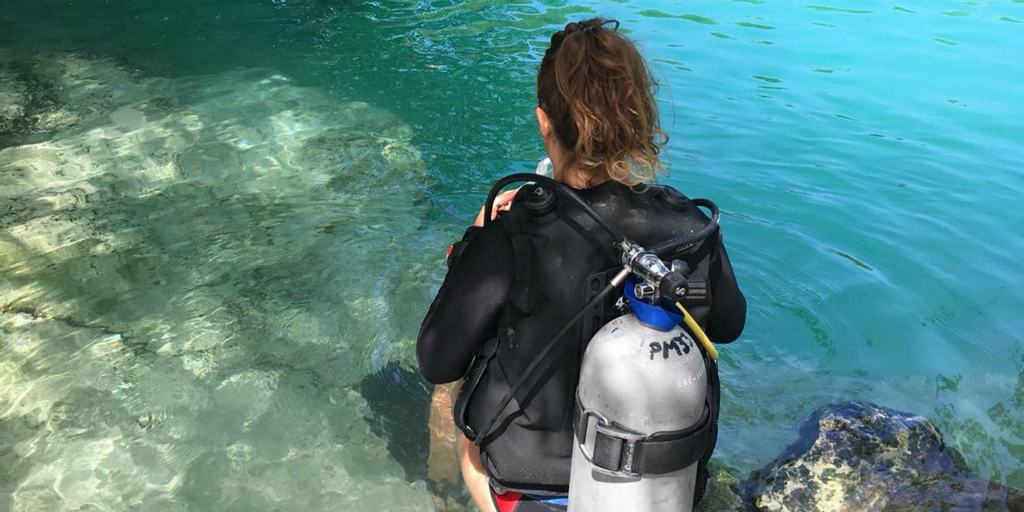
This PADI certification course will equip you with the skills needed for rescuing yourself and others in emergency situations underwater. This is a two- or three-day course that involves theory, a pool session, as well as open water training dives.
You will learn how to identify the signs of distress in other divers, how to manage equipment in emergency situations and what to do if a fellow diver is panicked or unresponsive.
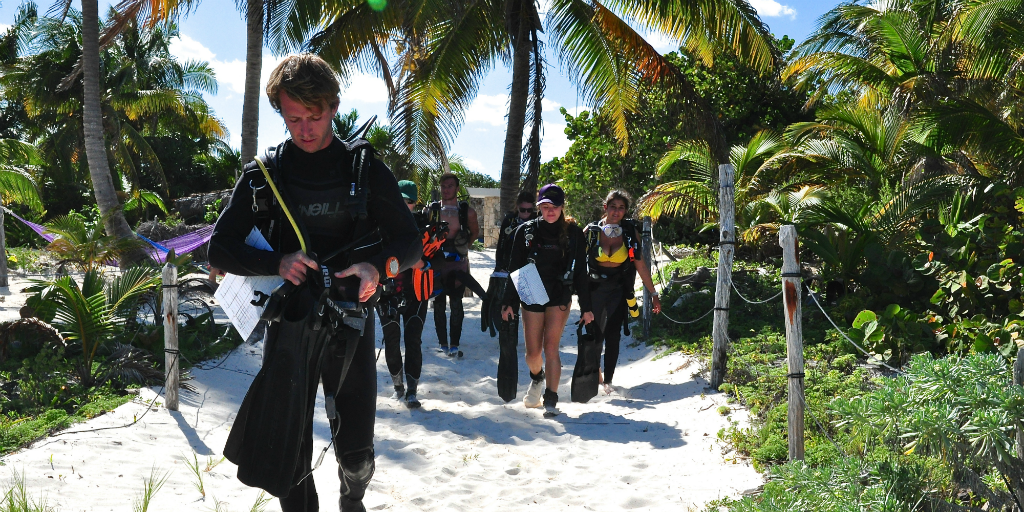
The most elite PADI certification level, becoming a PADI Divemaster, is something that fewer than 2% of all divers go on to achieve.
Achieving a Divemaster PADI certification status is time-consuming and requires a high level of commitment and dedication to diving.
To reach this PADI professional level, you need to have previously received your Rescue Diver qualifications, have five Specialty Diver certifications and have participated in a minimum of 50 dives.
Eager to take it up a notch once you’ve received your Divemaster? You can continue your education and qualify to become an instructor!
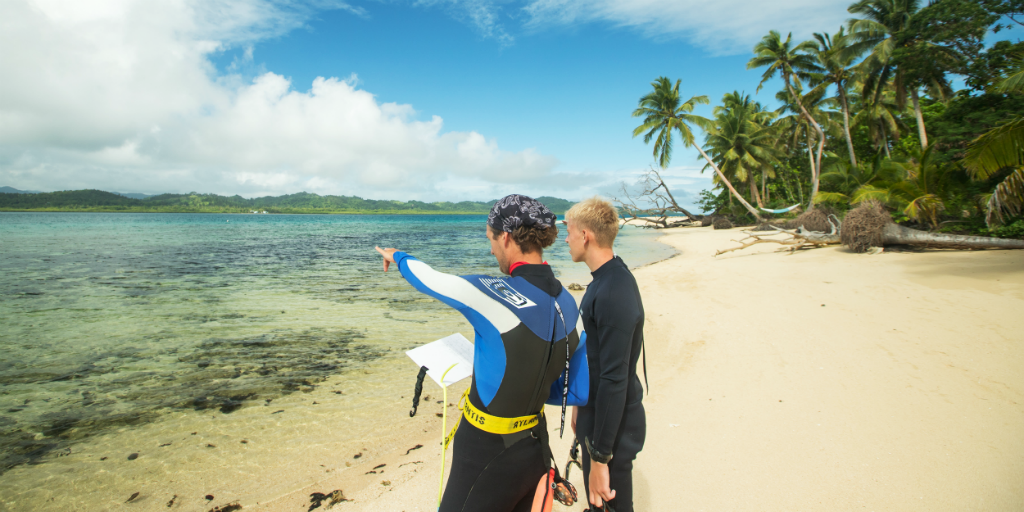
So you’ve made the decision to become a PADI pro, but aren’t sure where to start?
With the marine conservation expedition in Seychelles, you can get your PADI Advanced Open Water and PADI Coral Reef Research Diver Distinctive Specialty qualifications. You’ll achieve all this while simultaneously working towards marine conservation goals alongside the local government.
In Fiji, you can learn to dive like a PADI pro and experience the warm waters of the south Pacific Ocean while also gathering data that will aid the local management of marine protected areas. Doing this will help with the long-term protection of delicate coral reefs and marine ecosystems.
Dive head-first into one of our marine conservation volunteer programs and make an impact while you become a PADI professional.
By Megan Colborne
From the postcard-perfect Coral Bay to the hidden beauty of Secret Cove, these spots promise stunning photos and unforgettable views.
GVI
Posted: August 29, 2024